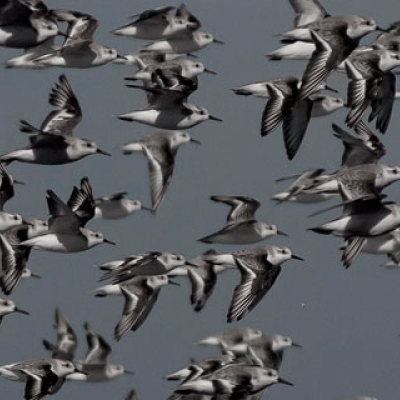They went into the muslin bags easily as we freed them one by one from under the heavy net. Some were stunned, frozen, immobile; others struggled between the strands, exploding with powerful wings when handled. I was a tag-along, a newbie, an invited guest to this fall ritual of trapping, counting, banding, and collaring Aleutian cackling geese (Branta hutchinsii leucopareia), an annual joint venture between the US Fish and Wildlife Service (USFWS) and the California Department of Fish and Wildlife (CDFW).










